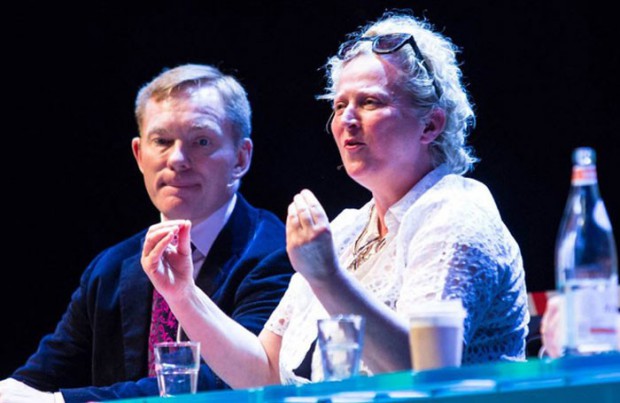Jenny Sealey, director of Graeae Theatre Company, has had a brainwave. Fine producers who don’t employ disabled actors. She’s particularly concerned about the failure of opera directors to hire performers with impaired sight and hearing: ‘There is no diversity whatsoever inside those opera houses. And that is disgusting.’
She wants her new fines siphoned into ‘a training pot so that we can be training deaf and disabled artists.’ Her company, by the way, trains such performers. And that’s fair enough. Nick your rivals’ lunch and eat it yourself. Standard practice in most industries.
But the Sealy Code may not prove entirely workable. First of all, fines need to be policed and enforced. And a system of appeals will be required as well. Lawyers will rub their hands as paranoia spreads across the West End and into the regions.
Producers will start to assemble dossiers of evidence demonstrating their commitment to the disability quota. Auditions will be recorded, catalogued and stored. A director preparing a production of, say, Pygmalion, will want to prove that he gave a deaf performer a chance to play Higgins and that he auditioned an actress with narcolepsy to play Eliza. Casting directors will film themselves schmoozing thesps in wheelchairs at fully accessible restaurants in Covent Garden.
But I doubt if this will help disabled performers find work in the theatre. The Sealey Code will simply create a new standard for able-bodied actors to meet. Thesps are, after all, smart, resourceful people trained in the arts of improvisation. And most of them will do anything to land a job. They’ll have no difficulty faking the symptoms of milder impairments like dyslexia or obsessive compulsive disorder. Even severe afflictions will lie well within their range. A drama student familiar with Hamlet knows exactly how to appear suicidally depressed. And any actor who has played Oedipus can simulate bad eyesight. The more you look at the classical canon the more you find characters with physical and mental troubles. Richard III suffers from a deformed spine. Lear has dementia. Julius Caesar has epilepsy. Ditto Othello. Falstaff’s eating disorder puts him at risk of Type 2 diabetes. Mark Antony has problems with alcoholism and sex addiction while Macbeth has anger management issues.
The fact is that faking disability is almost a working definition of acting. But the real danger for disabled actors is that their able-bodied colleagues will start to complain that the Sealy Code discriminates against the fit and healthy. A cry will go up that disability itself must become more inclusive. The definition will have to expand to cover things like vertigo, arachnophobia, colour blindness, repetitive strain injury, dizzy spells, water retention, dandruff and ennui.
Eventually the role of the casting director will pass to the medical profession. Every actor will ask his GP to provide documentary proof that he suffers from tennis elbow, migraines and claustrophobia. A new form of ‘the Method’ will spring up in NHS surgeries. Sick and dying patients will sprawl in waiting rooms while, ahead in the queue, a West End hopeful perfects his one-eyed, club-footed Malvolio.
Is that what we want?







Comments